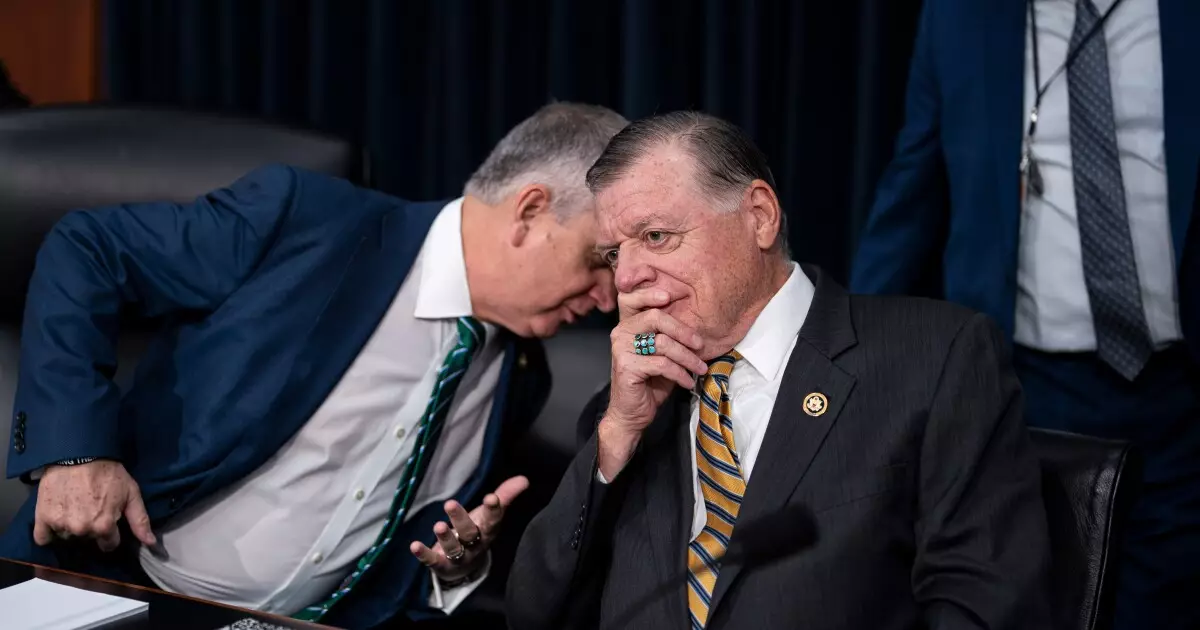As the 118th Congress nears its wrap-up next week, lawmakers will converge on Capitol Hill to finalize critical legislation, particularly focusing on government funding, national defense authorization, and disaster relief provisions. Set for closure on December 20, the upcoming lame-duck session is pivotal, albeit reluctant to address significant municipal market concerns. Insights from industry experts such as Brett Bolton, vice president of federal legislative and regulatory policy at the Bond Dealers of America, suggest that this session might primarily serve as a clean-up phase for pressing legislative matters. The success and extent of these discussions could shape the early fiscal landscape for 2025, potentially streamlining the tax reform process under the new administration.
Central to the legislative agenda is the urgent need to extend the current government funding resolution, which expires on December 20. Lawmakers face an imminent partial shutdown unless they can negotiate a continuing resolution that sustains financing through early 2025. The specifics of this funding extension remain ambiguous, with a broad spending plan for fiscal year 2025 appearing unrealistic before the new year, considering the apparent deadlock in bipartisan consensus on a top-line spending figure.
House Speaker Mike Johnson, R-La., advocates for a short-term resolution extending government operations into February or March 2025. This approach allows the forthcoming President Donald Trump to influence budgetary decisions right out of the gate. His anticipated budget director, Russell Vought, encourages lawmakers to defer extensive spending discussions, emphasizing a need for caution and time to devise more responsible fiscal strategies.
In addition to government funding, disaster relief efforts are also anticipated to be woven into the short-term funding bill. Bipartisan support for a substantial disaster aid package was expressed during a Senate Appropriations Committee hearing on November 20, indicating a collective recognition of the urgency surrounding disaster-hit regions. It’s essential for Congress to consider such funding with care, especially given the increasing frequency and severity of natural disasters impacting communities nationwide.
The National Defense Authorization Act (NDAA), a staple of congressional activity for over six decades, also demands lawmakers’ attention. As it stands, the NDAA for this year is unlikely to encompass significant new legislation, a contrast to the previous year’s bill, which introduced the Financial Data Transparency Act that imposed additional regulations on municipalities regarding municipal bonds. The impending release of the NDAA text brings anticipation, although many observers expect it to reaffirm existing military priorities without introducing major overhauls.
Looking ahead, with Republicans poised to assume a more prominent role in governance following the upcoming presidential inauguration, there’s speculation regarding sweeping changes. Senator Jodi Ernst, R-Iowa, is at the forefront of promising substantial cuts to infrastructure programs, proposing over $2 trillion in spending reductions. Her critiques target several initiatives from the Infrastructure Investment and Jobs Act, specifically the underwhelming progress on electric vehicle charging networks and broadband expansion. Ernst’s focus on California’s major rail projects highlights a growing sentiment among conservatives to redirect federal funding from programs they deem inefficient.
As Ernst prepares to lead a Senate caucus dedicated to enhancing government efficiency, the implications of her proposals could significantly affect the direction of future infrastructure spending. The contemplation of terminating programs, such as the ambitious California high-speed rail project, indicates a palpable shift in the Republican budgetary strategy influenced by results-oriented governance.
The upcoming lame-duck session is a crucial period for lawmakers as they tackle immediate budgetary challenges and set the stage for a new administration. Balancing the urgency of government funding and disaster aid with the looming pressure for fiscal restraint and accountability will be a contentious task. The predicted changes in Republican leadership could create a tumultuous landscape for future spending and funding strategies, echoing the broader ideological battles that continue to define U.S. governance. As Congress prepares to finalize its agendas, stakeholders across various sectors will be closely observing the outcomes, which are sure to have lasting implications for the nation’s fiscal health and operational efficacy.

